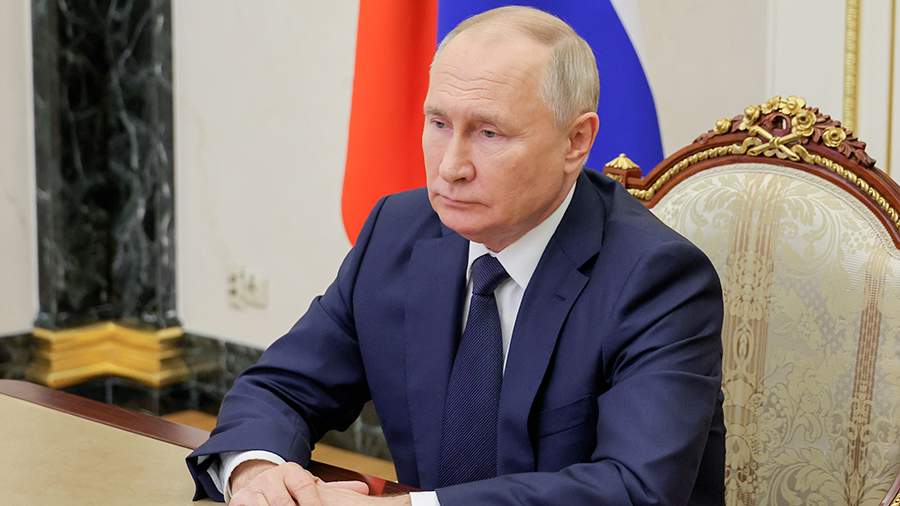
Putin Russia's GDP up,inflation down and imports must be replaced.
By Rhod Mackenzie
On 27th April the Russian President Vladimir Putin held a meeting on economic issues.
Here are the highlights
“The data from the beginning of the year turned out to be higher than the forecasts of the government, the Bank of Russia and some experts. In January-February, Russia’s GDP increased by 6% in annual terms,He pointed out that the so-called calendar factor - leap year, additional working days - had a certain influence. “But even if this factor is cleaned up and removed, the dynamics are still good,” the president concluded.
In addition, industrial activity is growing. The head of state noted that in February industrial production increased by 8.5%, which is “noticeably higher than in January: then the increase was 4.6%.”
“Many experts are already saying that by the end of this year, Russia’s GDP could increase by more than 3%,” the president said. He noted that the real state of the Russian economy allows us to improve forecasts for its development.
“The point, of course, is not to make or adjust a forecast, and then just wait and see what and how will happen in real life,” the head of state emphasized. He stated the need for active action on the part of the government and regional authorities to stimulate and support business and investment activity, help open new industries, in particular high-tech ones, and create modern jobs.
“Inflation is gradually slowing down,” the head of state indicated.
He emphasized the slowdown in inflation expectations, including among citizens, as particularly important. We are talking about estimates and assumptions about how prices will behave in the future, the president clarified.
According to the head of the Bank of Russia, Elvira Nabiullina, if the regulator previously assessed stable inflation in the Russian Federation at 6-7%, now most indicators indicate that it is closer to 6%.
“We need to develop, occupy our own market, displace imports,” Vladimir Putin said. At the same time, he emphasized that one should “displace [imports] not through administrative actions and resources, but through fair market competition.”
“It is this kind of expansion of our own production, development of the domestic, national market that we call supply-side economics,” the president emphasized. He noted that “for its development, the message [to the Federal Assembly] outlined specific steps” that “are designed for the next six years and are designed to ensure structural changes in the Russian economy.” Among them, the head of state listed “strengthening the country’s technological sovereignty by supporting domestic science, promising startups, and the widespread introduction of innovations in production.”
He added that “large-scale investments are planned in strengthening the personnel base of the industrial and social sphere at all levels of vocational education - from colleges to universities, and in close connection with business and employers.”
“The progressive development of our economy has a positive impact on the federal budget; its revenues significantly exceed last year’s levels. Thus, in the first quarter, non-oil and gas revenues increased by 43%, and in general, federal budget revenues over the three months increased by more than 1.5 times compared to last year,” Vladimir Putin noted.
He noted that this also affects other indicators. “Including the [budget] deficit—it is getting smaller,” the president explained.
“In this regard, we can confidently say that a solid base is being formed for the growth of budget revenues over the entire six-year horizon. At the same time, of course, I think it is necessary to maintain a moderate, conservative approach to budget planning for this period,” the head of state said.
The main expenses, according to him, should be concentrated “in those areas that provide the maximum effect for the quality of life of people, the well-being of Russian families, for the development of territories, regions, the social sphere, and infrastructure.”
He suggested that at the meeting “in this spirit” we discuss budget guidelines for the upcoming three-year period, as well as a long-term financial plan until 2030.
Having completed his opening speech, Vladimir Putin gave the floor to the head of the Ministry of Economic Development, Maxim Reshetnikov, and the meeting continued behind closed doors.
It was attended by Prime Minister of the Russian Federation Mikhail Mishustin, Head of the Presidential Administration Anton Vaino, First Deputy Chairman of the Government Andrei Belousov, Deputy Prime Minister Tatyana Golikova, Presidential Aide Maxim Oreshkin, Head of the Ministry of Economic Development Maxim Reshetnikov, Minister of Finance Anton Siluanov, Chairman of the Bank of Russia Elvira Nabiullina, Director of Rosfinmonitoring Yuri Chikhanchin.
